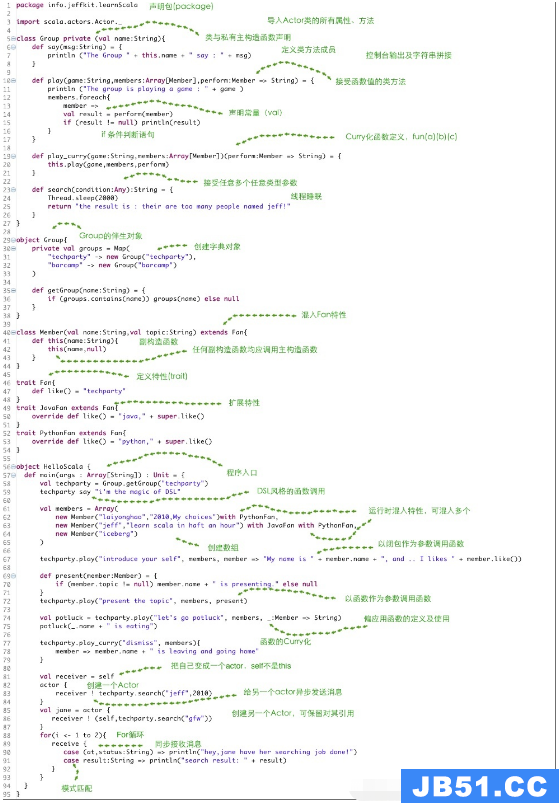鉴于以下EssentialAction ……
object MyController extends Controller {
...
def HasToken(action: Token => EssentialAction) = EssentialAction { request =>
...
// this doesn't compile
val body = request.body match {
case json: JsValue => json.toString
case _ => ""
}
// calculate hash with body content here
...
}
// here is an authenticated action
def getUser(userId: Strign) = HasToken { token =>
Action(parse.json) { request =>
request.body.validate[User] match {
...
}
}
}
}
…如何在不解析请求的情况下获取请求的正文?
我不想要,而且我不需要在HasToken中解析请求体,因为将在操作getUser中解析正文.我只需要身体的原始内容来计算哈希值.
HasToken中的代码无法编译,因为请求的类型为RequestHeader,而我需要一个Request,它定义了body.
解决方法
这对你有用吗?
object MyController extends Controller {
// Your HasToken Action
def Authenticate(action: Token => EssentialAction) = EssentialAction { requestHeader =>
// ... execute logic to verify authenticity using requestHeader
}
// Your action to validate tampering of request body and validity of JSON
def Validate[A](action: Token => Request[A]) = Action(parse.json) { request =>
val body = request.body
body match {
case json: JsValue => json.toString
case _ => ""
}
// calculate hash with body content here
body.validate[User] match {
// ...
}
}
def getUser(userId: Strign) = Authenticate { token =>
Validate { user =>
//.... Continue
}
}
}
>身份验证仅使用RequestHeader
>验证使用Request body. (奖励:身体只解析一次)
编辑:
问题1:我不想验证Validate中的正文…因为我需要一个可以在任何地方使用的通用验证机制,无论内容类型如何(例如用户,消息等).
def Validate[A,B](action: Token => Request[A])(implicit reads: Reads[B]) = Action(parse.json) { request =>
// ...
}
问题2:此外,如果令牌验证失败,则不必处理正文(这在文件上载的情况下很重要,当且仅当验证成功时才必须执行).在我看来,最好的选择是在Validate中读取正文的原始内容.
这很容易实现:
def Validate[A,B](action: Token => Request[A])(implicit reads: Reads[B]) = Action(parse.json) { request =>
val body = request.body
body match {
case json: JsValue => json.toString
case _ => ""
}
// calculate hash with body content here and figure out if the body is tampered
if (bodyIsNottampered) {
body.validate[B] match {
// ...
}
} else {
// log and return Future.successful(BadRequest)
}
}
编辑3:完整解决方案:
import play.api.libs.json.{Json,JsValue,Format}
object CompilationUtils {
class Token
case class User(name: String)
implicit val UserFormat = Json.format[User]
def authenticate = new Token // authentication logic
def isTampered(body: JsValue) = {
val bodyAsstr: String = Json.stringify(body)
// calculate hash with body content here
false
}
}
object MyController extends Controller {
import CompilationUtils._
// Your HasToken Action
def Authenticate(action: Token => EssentialAction) = EssentialAction { requestHeader =>
action(authenticate)(requestHeader) // your execute logic to verify authenticity using requestHeader
}
// Your action to validate tampering of request body and validity of JSON
def Validate[A,B](request: Request[A])(implicit formatA: Format[A],formatB: Format[B]): Either[Result,B] = {
val body = request.body
val bodyAsJsValue = Json.toJson(body)
if (!isTampered(bodyAsJsValue)) {
bodyAsJsValue.validate[B].fold(
valid = res => Right(res),invalid = err => Left(BadRequest(err.toString))
)
} else {
Left(BadRequest) // Request Tampered
}
}
def getUser(userId: String) = Authenticate { token =>
Action(parse.json) { request =>
Validate(request).fold(
badReq => badReq,user =>
// continue...
Ok("")
)
}
}
}


